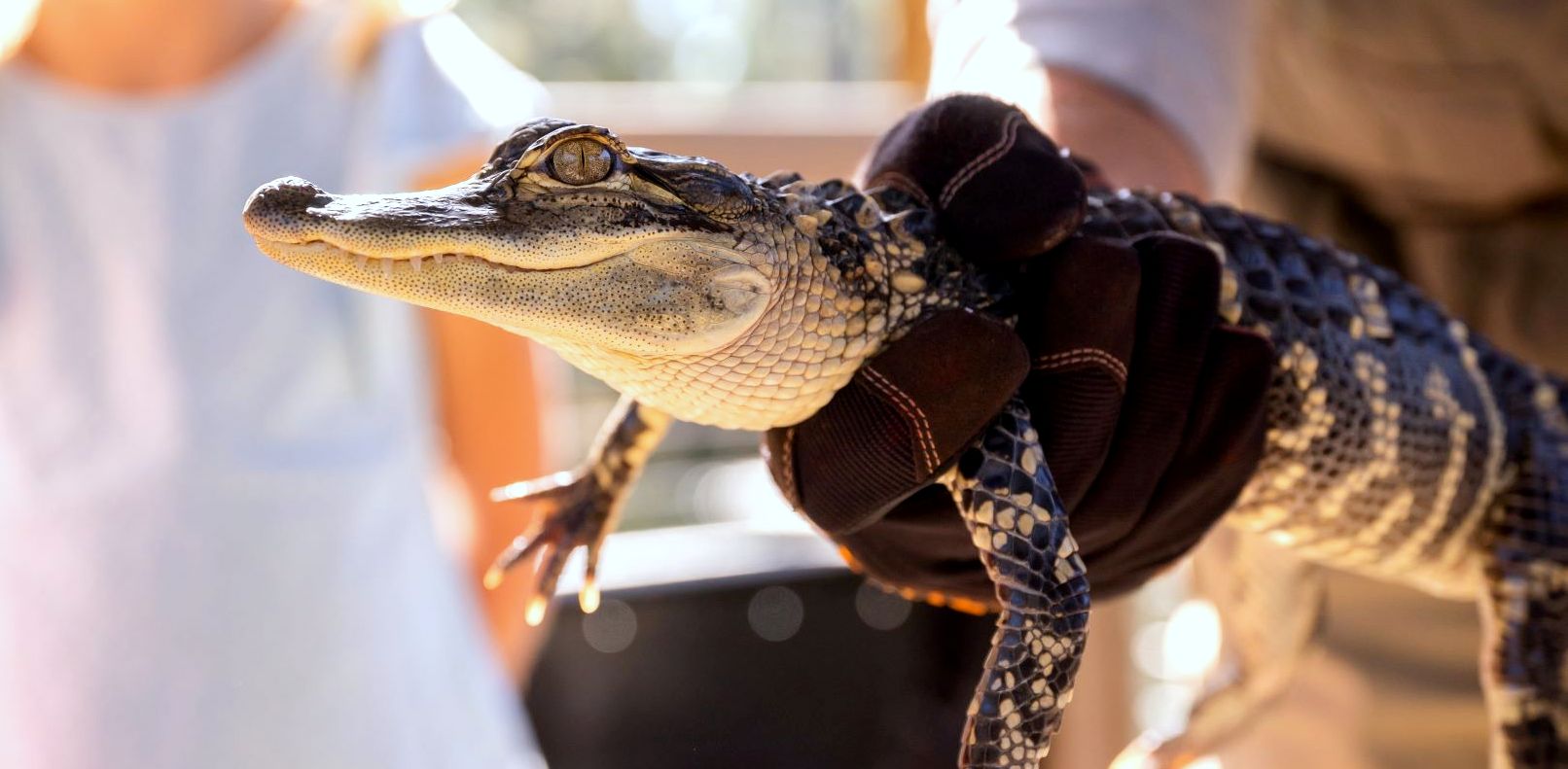Ray Emerson, JIA Lead Park Ranger
“What is the first thing you think of when you hear the word alligator?” This is the opening question guests are asked by Jekyll Island Park Rangers at the extremely popular Gatorology experience at Horton Pond. Responses range from “awesome”, “dinosaur”, “big”, “teeth”, to “fear”, “eat me”, and “scary”.
“We are most interested in responses similar to those last three – fear, eat me, and scary, ” says JIA Lead Park Ranger Ray Emerson. “It’s important that people understand that they really don’t need to fear these beautiful animals but give them respect they deserve and don’t EVER try to approach, touch, or especially feed an alligator or any other wild creature.”
Gatorology sessions educate guests on a variety of topics, beginning with the history of alligators (Alligator mississippiensis) from prehistoric times up until modern day, as well as their presence on Jekyll Island.
Next, Rangers discuss research conducted – previous and ongoing – on these true dinosaurs. One of the things staff and volunteers enjoy most is guest reactions after learning that the first true alligator fossil was discovered in 1911 in Montana!!
The highlight of the day is when each guest is afforded an opportunity to see a baby gator up close and even touch it if they like. This is truly an unforgettable experience, especially for the kids whose parents are ready with cameras to document this moment of a lifetime. The alligator “educational representatives” are born at Gatorland in Orlando, Florida, and are bred and raised specifically as captive educational animals.
The session wraps up with a re-emphasis of the Don’t Approach, Don’t Touch, Don’t Feed message with the hope that it will really resonate and stick. “If everyone takes even one thing away from our message today it’s communicate this to friends and family and make it a habit in their lives … then we’ve hit a home run,” says Lead Ranger Emerson.
Gatorology takes place April through September at Horton Pond, a wildlife viewing area made possible by funding from Jekyll Island Foundation donors. The Conservation Department is grateful for the support which makes educational experiences like this possible. For more information or to purchase tickets, click HERE.
